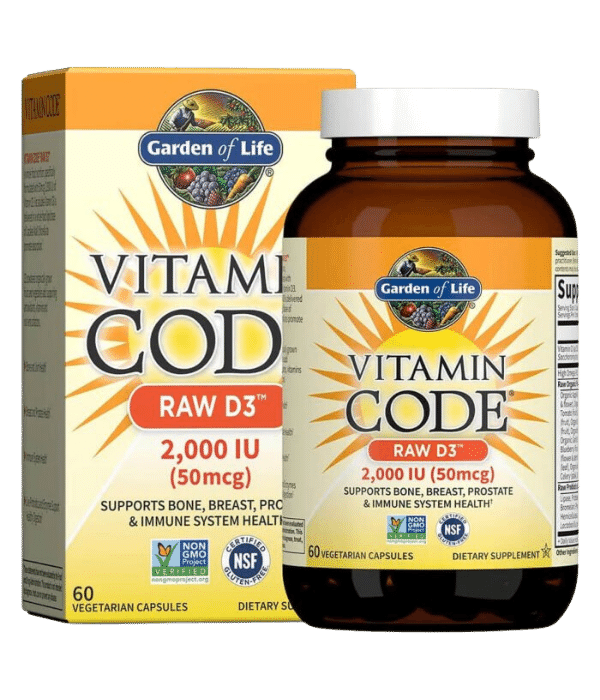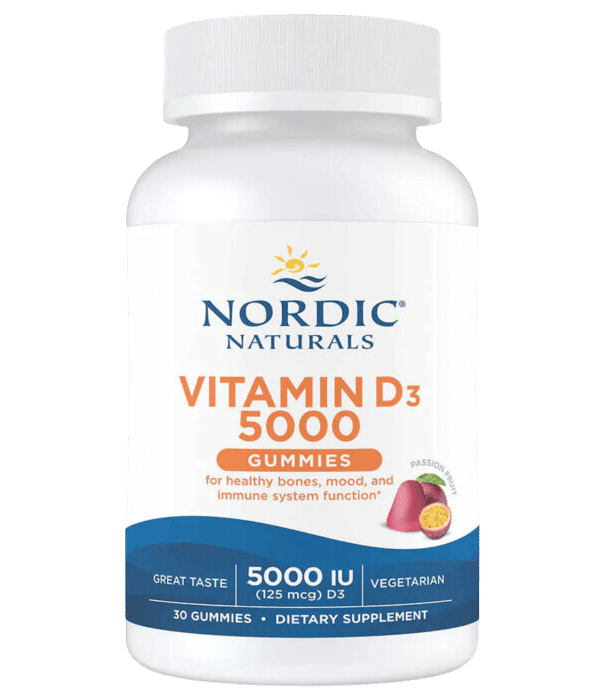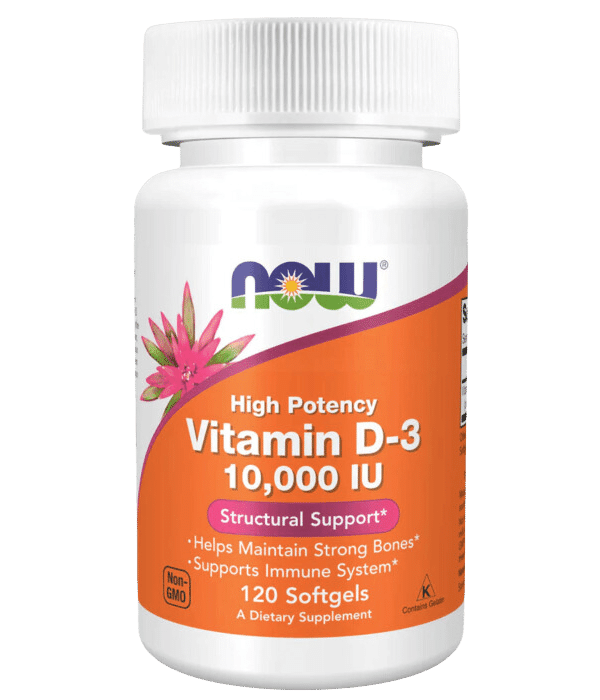Talk to a Registered Dietitian and use INSIDER20 for 20% off!
Talk to a real Dietitian for only $99: Schedule Now
This post contains links through which we may earn a small commission should you make a purchase from a brand. This in no way affects our ability to objectively critique the products and brands we review.
Evidence Based Research To fulfill our commitment to bringing our audience accurate and insightful content, our expert writers and medical reviewers rely on carefully curated research.
Read Our Editorial Policy
Nearly half the world is deficient in vitamin D, according to researchers.
These inadequacies can cause myriad issues, as vitamin D is involved with bone, cognitive, metabolic, immune, heart, and gut health, leading many people to look to vitamin D supplements for backup.
When it comes to vitamin D supplements, not all are created equal—keep reading to check out our top six options for supporting your vitamin D levels all year round.
Best Overall | Best Gummy | Highest Potency | |
|---|---|---|---|
| Product | Garden of Life | Nordic Naturals | NOW |
| Dosage and Ingredients | 2,000 IU | 5,000 IU | 10,000 IU |
| Cost | $22.99 for 60 servings ($0.38 per serving) Shop Now | $14.95 for 30 servings ($0.49 per serving) Shop Now | $16.99 for 120 servings ($0.14 per serving) Shop Now |
Best for: People wanting digestive support alongside their vitamin D supplement.
The Garden of Life Vitamin Code RAW D3 supplement is more than just a good source of vitamin D—it also contains gut-supporting ingredients like probiotics and digestive enzymes, plus a blend of 23 raw fruit and vegetable powders to add nutrients and antioxidants.
The vitamin D in this supplement is delivered in a lipid (fat) base of cracked-wall chlorella, which has undergone a special process to open the algae plant’s tough cell walls to increase absorption.
There are 2,000 IUs of vitamin D3 in this supplement, which is an adequate amount of vitamin D to raise your blood levels—for more information about dosages, continue to How Much Vitamin D Do You Need?
Best for: Adults who don’t like to take pills.
Gummy vitamins are popular among both children and adults—but the downside can be added sugar.
Although it’s not outrageous, these Nordic Naturals Vitamin D3 Gummies do contain 2g of added sugar per gummy.
If you’re trying to reduce your sugar intake, Nordic Naturals does have a sugar-free vitamin D3 option, which is sweetened with xylitol and colored with fruit and vegetable juice.
However, although delicious, these gummies wouldn’t be suitable for children to take because they contain a higher vitamin D3 dose of 5,000 IUs.
Best for: People requiring high daily doses of vitamin D3.
The NOW Vitamin D-3 10,000 IU provides a potent dose of 10,000 IUs of vitamin D3 in each soft gel capsule.
With 120 servings per bottle, this is a very affordable option for people needing to raise their vitamin D levels.
However, it’s important to know that not everyone needs this high of a vitamin D dose—it’s typically only recommended for people with moderate or severe vitamin D deficiencies.
While it’s likely safe to take 10,000 IUs of vitamin D, be sure to get a blood test to check your serum vitamin D3 levels before taking high-dose supplements for a long period of time.
Best for: Kids or adults wanting lower doses of vitamin D3.
The Garden of Life Kids Vitamin D3 Gummy is perfect for kids—or adults who want a sweet way to get a lower dose of vitamin D.
In addition to having a tasty citrus flavor, these gummies are sugar-free, sweetened with monk fruit, and colored with natural ingredients like annatto.
With a lower dose of vitamin D—800 IU—this gummy supplement provides more than 100% of the Recommended Dietary Allowance (RDA) to maintain a healthy kid’s vitamin D levels.
Best for: People on a budget looking for a vitamin D3-K2 combination.
At just $0.12 per serving, the Hi-Health Vitamin D3+K2 provides an affordable option for a moderately high dose of vitamin D3 (5,000 IU) with vitamin K2.
This duo of vitamins is beneficial because vitamin D helps with calcium absorption, but vitamin K2 (especially in the highly bioavailable form of MK-7) directs the calcium into the bones and teeth, where it’s needed to promote bone mineral density.
Without vitamin K2, calcium can end up in the bloodstream and arteries, where it can calcify and cause cardiovascular health problems.
Best for: People on a budget who don’t want to take pills.
Lastly, the NOW Liquid Vitamin D-3 is a helpful option for people who don’t want to take pills or gummies.
With four drops containing 400 IUs, this supplement contains the lowest vitamin D dose on this list—however, you can easily vary the dosage by taking more drops.
And with 527 (four-drop) servings per bottle, this liquid vitamin D will cost you less than two pennies per day, making it the most affordable option.
Another benefit of being able to take as low as 100 IUs (one drop) is that you can administer this vitamin D to children who aren’t able to take pills.
However, one thing to note is that this vitamin D3 is not vegan or vegetarian, as it is sourced from lanolin—sheep’s wool.
According to the National Institutes of Health, the recommended dietary allowance (RDA) for vitamin D is 600 IU for adults up to age 70 and 800 IU for adults over age 70, with a serum vitamin D level of 20 ng/mL being considered adequate.
However, many researchers agree that these recommendations are set too low.
The Endocrine Society recommends that adequate serum vitamin D levels should be above 30 ng/mL, which would require 1,500-2,000 IU per day for adults.
Some functional medicine doctors recommend even higher serum vitamin D levels, ranging between 50 to 80 ng/mL.
Supplemental vitamin D3 of 1,000-5,000 IU per day appears to be beneficial, with some research stating that 10,000 IU per day for adults is safe for a short period of time in cases of deficiency.
However, the study did find that hypercalciuria and hypercalcemia—excess calcium in the urine and blood, respectively—occurred more frequently with higher doses, with hypercalciuria occurring more often.
Hypercalciuria is a common cause of calcium kidney stone formation, and hypercalcemia can lead to kidney stones, kidney failure, irregular heartbeats, and osteoporosis.
Therefore, it’s important to know what your serum vitamin D levels are before you begin supplementing with higher doses—get your vitamin D levels checked by a healthcare practitioner first before taking regular doses over 5,000 IU per day.
The best form of vitamin D to take is vitamin D3 (cholecalciferol) because D3 is the superior form for raising vitamin D levels, as it’s more bioavailable and stable in the body than vitamin D2.
When it comes to supplement administration, that depends on your preference—you can take vitamin D in capsule, softgel, gummy, or liquid form.
Vitamin D3 supplements are best absorbed.
When it comes to supplement administration, a liquid form would be absorbed into the bloodstream faster than pills.
Vitamin D3 (cholecalciferol) is traditionally animal-derived—although new technologies have allowed for vegan versions of D3—while vitamin D3, or ergocalciferol, is plant-based from irradiated yeast or mushrooms.
Vitamin D3 is the type that our skin makes in response to sunlight, but both forms are found in foods—albeit not that many foods naturally contain either form.
For example, vitamin D3 is found in some egg yolks, oily fish, and fish liver oils, while D2 is found in some mushrooms.
Vitamin D3 is the better form to supplement with, as it’s more bioavailable and stable in the body, making it more effective at raising serum vitamin D levels—one study estimated that D3 was 87% more potent than D2 in raising and maintaining vitamin D levels.
However, vitamin D2 is cheaper and easier to synthesize, which is why many supplement or food brands use this form.
When looking for vitamin D supplements, ensure it’s in the D3 form to make sure your body can use the vitamin effectively.
Vitamin D is fat-soluble, so taking it with a fat source is necessary for absorption.
Vitamin D can be taken at any time of day, as long as it is near a fat-containing meal or snack.
Billington EO, Burt LA, Rose MS, et al. Safety of High-Dose Vitamin D Supplementation: Secondary Analysis of a Randomized Controlled Trial. J Clin Endocrinol Metab. 2020;105(4):dgz212. doi:10.1210/clinem/dgz212
Heaney RP, Recker RR, Grote J, Horst RL, Armas LA. Vitamin D(3) is more potent than vitamin D(2) in humans. J Clin Endocrinol Metab. 2011;96(3):E447-E452. doi:10.1210/jc.2010-2230
Liu X, Baylin A, Levy PD. Vitamin D deficiency and insufficiency among US adults: prevalence, predictors and clinical implications. Br J Nutr. 2018;119(8):928-936. doi:10.1017/S0007114518000491
Sassi F, Tamone C, D’Amelio P. Vitamin D: Nutrient, Hormone, and Immunomodulator. Nutrients. 2018;10(11):1656. Published 2018 Nov 3. doi:10.3390/nu10111656